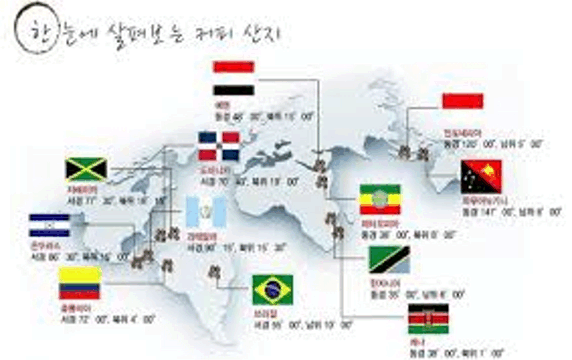접근 가능한 낙태, 피임 인센티브 및 원격 의료 연장: 오랫동안 기다려온 보고서가 귀하의 건강 관리에 의미하는 것
생식 건강 관리에 대한 매우 기대되는 조사에서 피임, 낙태 및 임신 관리를 보다 쉽게 이용할 수 있도록 호주의 건강 시스템에 중대한 변화를 권고했습니다.
권장 사항 중에는 의사가 성 및 생식 치료를 제공하도록 인센티브를 요청하고 피임 삽입에 대한 더 높은 리베이트와 의료 낙태에 대한 접근성을 높이는 것이 포함됩니다.
이 보고서는 국가 여성 건강 전략의 핵심 요소인 생식 및 성 건강 관리에 대한 접근성을 높이는 것과 관련된 정부 의사 결정의 중요한 부분을 형성할 것으로 예상됩니다.
이 조사가 중요한 이유
마크 버틀러(Mark Butler) 보건부 장관과 여성 건강을 담당하는 제드 키어니(Ged Kearney) 보건부 차관은 낙태 및 피임 서비스 제공에 상당한 변화를 주기 전에 조사 권고안을 기다리고 있다고 말했습니다.
상원 조사는 녹색당에 의해 설립되었지만 정치적 스펙트럼 전반에 걸쳐 상원 의원으로 구성되었습니다.
지속성 가역적 피임 삽입에 대한 Medicare 보조금을 늘리고 의료 전문가가 성 및 생식 치료를 제공하도록 인센티브를 제공하라는 요구를 포함하여 모든 권장 사항은 초당적이었습니다.
36가지 권장 사항 중 다음을 호출합니다.
IUD와 같이 장기간 지속되는 가역적 피임약을 삽입하는 의료 종사자에 대한 Medicare 리베이트 인상
누가 처방하고 조제할 수 있는지에 대한 규칙을 확대하여 의료 낙태(낙태 알약이라고도 함)에 대한 접근성을 높입니다.
제약 혜택 제도에서 더 많은 호르몬 피임약을 환자에게 저렴하게 제공
비호르몬 구리 IUD에 대한 보조금 지급
올해 12월 이후 성 및 재생산 원격 의료를 위한 Medicare 항목을 확장합니다(현재 자금은 2023년 말까지만 지원됨).
전국적인 피임, 낙태 및 성 건강 핫라인 소개 서비스 구축
퍼스트 네이션 부모를 위한 국내 출산 서비스 확대
대도시가 아닌 공립 병원에서 산부인과 진료 서비스를 이용할 수 있도록 보장
“여성들은 종종 가족과 지원 네트워크에서 멀리 떨어진 아주 먼 곳을 여행해야 하는데 그것이 정말 큰 문제라고 생각합니다.”라고 그녀는 말했습니다.
“그것은 탈구, 고립의 문제로 이어지고 가정 폭력으로 이어질 수 있으며 여성과 자녀의 건강 결과를 악화시킬 수 있습니다.
“우리는 특히 대도시 외 지역의 공공 병원에서 산부인과 진료 서비스를 제공할 수 있도록 주 및 준주와 협력하고 있는지 확인하라는 매우 강력한 권장 사항이 있습니다.”
[임신검사 사진]
Smith 상원의원은 이러한 문제에 대한 그녀의 개인적 연결이 상황이 바뀌는 것을 보려는 그녀의 결의를 이끌어낸다고 말했습니다.
“포트 링컨에 사는 Lynette 아줌마는 아기를 낳았을 때 17주 동안이나 떨어져 있어야 했습니다.
“그녀의 아기는 미숙아였고 집에서 가까운 곳에서 의료 서비스를 받을 수 없었습니다.
“이것은 40년 전 일이지만 우리는 지역 및 농촌 지역의 여성들이 마을이나 인근에서 적절한 산모 건강 관리 및 산모 건강 관리 서비스에 접근할 때 여전히 엄청난 어려움에 직면하고 있다는 것을 알고 있습니다.”
오래 지속되는 가역적 피임법에 대한 오랜 기다림
피임은 조사의 핵심 초점이었으며, 특히 장기간 지속되는 가역적 피임법(LARC)에 대한 접근성을 높이는 데 중점을 둔 권장 사항이 많았습니다.
자궁 내 장치(IUD) 또는 피임 임플란트와 같은 LARC는 시장에서 가장 효과적인 피임 도구 중 하나이지만 호주는 다른 국가에 비해 활용도가 낮습니다.
의사들은 정부가 비호르몬 IUD에 보조금을 지급하고 IUD 불활성화 및 제거에 대한 Medicare 리베이트를 늘릴 것을 요청해 왔습니다. 두 가지 모두 이 조사에서 권장되었습니다.
Smith 상원의원은 현재의 리베이트가 충분한지 여부에 대해 언급하지 않았지만 확실히 살펴볼 필요가 있다고 말했습니다.
“그것은 우리의 조사에서 나온 것이며 우리는 피임 치료뿐만 아니라 다른 사람들을 위한 이러한 종류의 서비스에 대한 MBS[Medicare 혜택 제도] 및 PBS[의약품 혜택 제도] 임계값의 전체 범위에 대해 의견을 제시했습니다. 뿐만 아니라”라고 그녀는 말했다.
“정부가 검토해야 할 다양한 사항이 있지만 우리 보고서의 권장 사항 중 핵심 부분으로 LARC를 제외했습니다.”
저렴한 낙태 치료를 구성하는 요소에 대한 합의 없음
또한 권장 사항 목록에는 공공 병원 시스템을 통해 낙태에 대한 접근성을 높이는 것이 있습니다.
낙태는 모든 주와 테리토리에서 합법이지만 많은 환자들이 낙태 비용을 감당하기 위해 고군분투하거나 낙태를 위해 먼 거리를 여행해야 하는 상황에서 모든 사람이 쉽게 접근할 수 있는 것은 아닙니다.
2019년에 노동당은 공립 병원 기금을 낙태 제공과 연결하겠다고 약속했지만 그 이후로 그 정책을 철회했습니다
ABC가 노동당이 낙태에 대한 접근성을 높이겠다는 약속을 이행하기 위해 무엇으로 대체할 계획인지 물었을 때 마크 버틀러 보건부 장관은 이 조사의 권고를 기다리고 있다고 말했습니다.
조사 위원회에도 참여했던 녹색당 상원의원 Larissa Waters는 권고안이 보여주는 초당적 정신이 낙태 접근 문제를 해결하기 위한 흥미로운 단계라고 말했습니다.
Waters 상원의원은 “모든 정당은 우리가 이러한 문제를 해결해야 한다는 데 동의했습니다.”라고 말했습니다.
“나는 당신이 어디에 살든 낙태를 더 접근하기 쉽고 더 저렴하게 만드는 것이 핵심 권장 사항이라고 생각합니다.
“나는 우리 모두가 견뎌온 10년을 고려할 때 여성의 권리와 관련하여 꽤 큰 문제인 이러한 권고 사항에 대해 다당적 동의를 갖게 되어 매우 기쁩니다.
“공립 병원은 수술 낙태에 대한 접근을 제공해야 하며 그렇지 않은 경우 시의적절한 지역에서 저렴한 옵션을 추천해야 합니다.”
접근에 대한 초당적 합의가 있었지만 위원회는 무엇이 합리적인 낙태를 구성하는지에 대해서는 합의에 도달하지 못했습니다.
Waters 상원의원은 “녹색당이 좀 더 많은 작업이 완료되기를 원하는 부분은 귀하가 해당 서비스에 액세스할 수 있는 주머니가 없는 것이 아니며 정부로부터 최종 합의를 얻을 수 없는 부분”이라고 말했습니다. .
“그러나 우리는 공립 병원이 낙태를 제공해야 하거나 그렇지 않은 경우 지역 의료 제공자에게 시의 적절하고 저렴한 소개를 제공해야 한다는 원칙에 동의했습니다.”
Waters 상원의원은 낙태와 마찬가지로 출산 서비스와 돌봄에 대한 접근은 우편번호 추첨이라고 말했습니다.
“우리는 특히 여성들이 Rocky 병원까지 100km 이상을 운전해야 하고 고속도로 옆에서 출산해야 하는 내 고향인 Queensland의 Gladstone에서 공포 이야기를 들었습니다.”
피임기구 업체 문의 환영
Organon의 전무 이사 Nirelle Tolstoshev는 조사의 권고를 환영했습니다.
이 회사는 호주에서 Implanon으로 알려진 피임 임플란트와 같은 LARC를 판매합니다.
그녀는 이 보고서가 호주 여성 건강의 주요 이정표라고 말했습니다.
“정책 입안자, 정부 및 관련된 모든 이해 관계자가 여성의 건강과 성과 재생산 건강을 최우선으로 생각해야 할 때입니다.”
톨스토셰프 장관은 “이 보고서에는 많은 권장 사항이 있으며 한 번에 모두 수행할 수 없다는 것을 이해하지만 정부가 거의 즉시 조치를 취할 수 있는 두 가지 권장 사항이 있다고 생각한다”고 말했다. .
“먼저, 지속형 가역적 피임법의 삽입 및 제거에 대해 등록 간호사, 임상간호사 및 조산사에게 상환합니다.
“진정한 차이를 만들 수 있다고 생각하는 두 번째 권장 사항은 Medicare 시스템에 MBS 항목을 포함하는 것입니다.
“그래서 GP가 피임에 대해 더 긴 상담을 할 수 있고 피임이 필요한 여성과 사람들이 가능한 모든 옵션을 듣고 자신의 생식 선택, 자신의 삶의 단계에 대해 정보에 입각한 선택을 할 수 있습니다. ” 그녀가 말했다.
2시간 전에 게시됨
Accessible abortion, contraception incentives and Telehealth extensions: What a long-awaited report means for your healthcare
By political reporter Claudia Long
Posted 2h ago2 hours ago
Various contraceptive medications and devices, like the pill, an IUD and condoms
The recommendations in the inquiry included making hormonal contraceptives on the pharmaceutical benefits scheme.(Unsplash: Reproductive Health Supplies Coalition)
Help keep family & friends informed by sharing this article
Link copied
COPY LINK
SHARE
A highly anticipated inquiry into reproductive healthcare has recommended significant changes to Australia’s health system to make contraception, abortion and pregnancy care more accessible.
Key points:
The government has been waiting on this report before making decisions on abortion, contraception and pregnancy care
The inquiry was made up of senators from across the political spectrum
Among the 36 recommendations are incentives for doctors and increased subsidies
Among the recommendations are calls for incentives to get doctors to provide sexual and reproductive care, higher rebates for insertion of contraception and increasing access to medical abortions.
The report is expected to form a significant part of the government’s decision making around increasing access to reproductive and sexual healthcare, a key element of the national women’s health strategy.
Why this inquiry is important
Health Minister Mark Butler and Assistant Health Minister Ged Kearney — who is responsible for women’s health — said they were waiting to see the recommendations of the inquiry before making substantial changes to abortion and contraception service delivery.
The senate inquiry was established by the Greens but made up of senators from across the political spectrum.
All recommendations were bi-partisan, including calls to increase the Medicare subsidy for inserting long-acting reversible contraception, and for incentives for health professionals to provide sexual and reproductive care.
Among the 36 recommendations are calls to:
Increase the Medicare rebate for healthcare workers inserting long-acting reversible contraceptives, such as IUDs, which doctors have said is much too low
Make medical abortions (also known as abortion pills) more accessible by broadening the rules around who can prescribe and dispense them
Make more hormonal contraceptives available on the pharmaceutical benefits scheme to make them cheaper for patients
Establish a subsidy for non-hormonal copper IUDs
To extend Medicare items for sexual and reproductive telehealth beyond December this year (currently they’re only funded until the end of 2023)
Establish a national contraception, abortion and sexual health hotline referral service
Increase birthing-on-country services for First Nations parents
Ensure maternity care services in non-metro public hospitals are available
Labor Senator Marielle Smith, who served as deputy chair of the inquiry, told the ABC recommendations around pregnancy and post-natal care need to be urgently taken on board.
“Women are often forced to travel very long locations away from their families, away from their support networks and I think that’s a really big problem,” she said.
“It leads to problems of dislocation, isolation, it can lead to domestic violence, it can lead to poorer health outcomes for women and their children.
“We have a recommendation in there, a very strong one, to make sure we’re working with states and territories so that maternity care services can be provided in public hospitals, particularly in out of metropolitan areas.”
[pregnancy test photo]
Senator Smith said her personal connection to these matters drives her determination to see the situation change.
“My Aunty Lynette, who is from Port Lincoln, when she had her baby she was separated from her for 17 long weeks.
“Her baby was premature and she couldn’t get that access to health care close to home.
“This was 40 years ago, but we know women in regional and rural areas are still facing tremendous challenges when it comes to accessing appropriate maternal health care and maternal health care services in their town or nearby.”
Long wait for long-acting reversible contraception
Contraception was a key focus of the inquiry, with many of its recommendations centred around increasing access to long-acting reversible contraception (LARC) in particular.
LARCs such as intra-uterine devices (IUDs) or the contraceptive implant are among the most effective contraceptives on the market, but Australia has low uptake compared to other countries.
Doctors have been calling for the government to subsidise non-hormonal IUDs and increase the Medicare rebate for IUD inertion and removal — both of those things have been recommended by this inquiry.
Women’s pain a focus with IUDs
Every year, thousands of women in Australia choose an IUD as a form of contraception but many, like Jess Holmes, say they were unprepared for the pain associated with the procedure and more needs to be done.
a young woman looking
Read more
Senator Smith would not be drawn on whether the current rebate was sufficient, but said its certainly something that needs to be looked at.
“That is something which came up in our inquiry and we’ve made comments around a whole range of MBS [Medicare benefits scheme] and PBS [Pharmaceutical benefits scheme] thresholds on these kinds of services, not just for contraceptive care, but for others as well,” she said.
“There’s a range of things for the government to look at, but we really did pull out LARCs as a central piece of the recommendations of our report.”
No agreement on what constitutes affordable abortion care
Also on the list of recommendations is to increase access to abortion via the public hospital system.
While abortion is legal in every state and territory, it isn’t easily accessible to everyone with many patients struggling to afford the procedure or being forced to travel long distances to get it.
In 2019, Labor committed to linking public hospital funding to abortion provision but have since dropped that policy.
When the ABC asked what Labor planned to replace it with to follow through on their commitment to increase access to abortion, Health Minister Mark Butler said he was waiting to see the recommendations of this inquiry.
Greens Senator Larissa Waters, who was also on the inquiry committee, said the bipartisanship illustrated by the recommendations was an exciting step towards solving issues with abortion access.
“All of the political parties have agreed that we need to fix these problems,” Senator Waters said.
“I think the key recommendations really go to making abortion more accessible and more affordable no matter where you live.
“I’m so pleased that we’ve had multi-partisan agreement on these recommendations, which is a pretty big deal when it comes to women’s rights considering the decade that we’ve all just endured.
“Public hospitals should provide access to a surgical abortion, and if they don’t they should provide referral to a local affordable option that is timely.”
Rebate for IUD insertion increased
The Medicare rebate for getting an intra-uterine device (IUD) inserted has been raised but doctors say it still does not come close to covering the cost of the procedure.
A white intrauterine device on a colourful background.
Read more
While there was bi-partisan agreement on access, the committee couldn’t reach agreement on what constitutes an affordable abortion.
“The bit that the Greens want to see a bit more work done on is that you’re not out of pocket to access that service and that’s the bit that we couldn’t quite get final agreement on from the government,” Senator Waters said.
“But we did get agreement to the principle that public hospitals should provide abortions or if not, that they should provide a timely and affordable referral to a local provider.”
Senator Waters said like with abortion, access to birthing services and care is a postcode lottery.
“We’ve heard horror stories, particularly from Gladstone in my home state of Queensland, where women are having to drive over 100 kilometres to the Rocky hospital, and they’re having to give birth on the side of the highway.”
Contraceptive device companies welcome inquiry
Organon’s managing director Nirelle Tolstoshev welcomed the recommendations of the inquiry.
An array of contraceptive devices displayed in front of a blue background from condoms to the pill.
Contraceptive device companies welcome the inquiry(Supplied: Reproductive Health Supplies Coalition/Unsplash)
The company sells LARCs such as the contraceptive implant — known as Implanon — in Australia.
She said the report was a major milestone for women’s health in Australia.
“It’s about time that women’s health and sexual and reproductive health is top of mind for policy makers, for the government and all stakeholders involved.”
“There are many recommendations in this report, and we understand that they can’t all be done at once — however, we do think that there are two recommendations that really could be acted upon by the government almost straight away,” Ms Tolstoshev said.
“Firstly, to reimburse registered nurses, nurse practitioners and midwives for the insertion and removal of long-acting reversible contraception.
“The second recommendation that we think would make a real difference is to have an MBS item on the Medicare system.
“So that GPs can have a longer consult around contraception to really create that discussion, so that women and people needing contraception can hear all of the options available and make an informed and empowered choice for their own reproductive choices, for their own life stage,” she said.
Posted 2h ago










